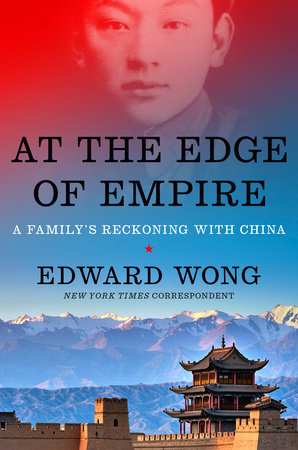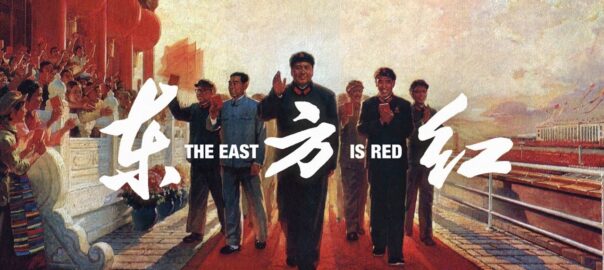Podcast: Play in new window | Download
Subscribe: Apple Podcasts | RSS
Writer’s Voice: compelling conversations with authors who challenge, inspire, and inform.
In this episode of Writer’s Voice, we talk with Edward Wong, diplomatic correspondent for The New York Times and former Beijing bureau chief, about his new book At the Edge of Empire: A Family’s Reckoning with China.
Part memoir, part history, and part frontline reporting, the book traces Wong’s journey to uncover his father’s hidden past in Mao’s China, his family’s divided loyalties between Communist and American ideals, and what those personal histories reveal about China’s trajectory under Xi Jinping.
“I realized that much of my father’s experiences living in China under Mao sort of set the stage for the rule of the Communist Party later in the years I was witnessing it.” — Edward Wong
From the trauma of revolution and famine to the nationalism driving China’s global ambitions today, Wong shows us the direct line between Mao’s authoritarian rule and the tightening grip of Xi’s regime.
And he asks a question that resonates far beyond China: what does this story tell us about the dangers of authoritarianism in our own time?
Follow us on Bluesky @writersvoice.bsky.social and subscribe to our Substack. Or find us on Instagram @WritersVoicePodcast
Key Words: Edward Wong interview, At the Edge of Empire, Mao Zedong, Xi Jinping, Chinese authoritarianism, Uyghurs, Tibet, state capitalism, Chinese history, climate policy China, modern China politics, Chinese empire, Writer’s Voice podcast
You Might Also Like: Michael Klare on the Pentagon, China and Climate, Tessa Hulls, FEEDING GHOSTS

Episode Summary
journalist Edward Wong discusses his book At the Edge of Empire: A Family’s Reckoning with China. Through the intertwined histories of his father’s life in Mao’s army and his own decades reporting for The New York Times in China, Wong explores how personal and national histories mirror one another.
He examines the Communist Party’s consolidation of power under Mao, the enduring trauma of the Great Leap Forward, and the reemergence of authoritarian rule under Xi Jinping. From the battlefields of Korea to the surveillance states of today, Wong shows how China’s imperial ambitions—old and new—continue to shape its politics and the world order.
Key Topics
- Family and generational memory in modern Chinese history
- Mao’s revolution and the Great Leap Forward
- Xi Jinping’s consolidation of power and authoritarianism
- State capitalism and economic reform in China
- The Uyghur repression and imperial control of Xinjiang and Tibet
- China’s global ambitions and U.S.-China relations
- Climate change, coal dependency, and green innovation
- The resilience and adaptability of authoritarian regimes

